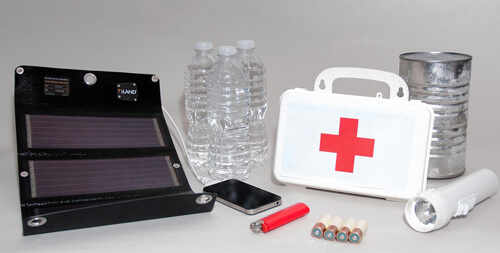(StatePoint) Between buying new school supplies and meeting your children’s teachers, back to school season is a busy time. But parents should not forget to prep for the school year by considering health and wellness.
Experts say the first step is to schedule a visit to the doctor.
“The start of a new school year is an excellent reminder to take kids to the pediatrician for their annual checkup,” says Dr. Thomas K. McInerny, president of the American Academy of Pediatrics (AAP).
To prepare for a healthy, safe and happy school year, the AAP is offering these tips for parents:
• Doctor’s visit: Make the most of your visit to the pediatrician by making a list of issues to discuss.
• Immunizations: Whether you’re the parent of a young child, a teen or a young adult heading to college, ask your pediatrician what immunizations your child is due to receive. Vaccines save lives and keep kids and adults healthy.
• Nutrition: Talk with your child’s pediatrician and school about healthful food choices. You can ask the school to stock the cafeteria and vending machines with nutritious food, such as fresh fruit, low-fat dairy products, water and 100 percent fruit juice. If you don’t like the options the school offers, pack lunch and snacks at home.
Limit soda consumption. Each 12-ounce soft drink contains approximately 10 teaspoons of sugar and 150 calories. Drinking just one can of soda a day increases a child’s risk of obesity by 60 percent.
• Exercise: Make sure your kids are getting plenty of exercise. Turn off the television and make time for sports teams, gymnastics classes and bike rides. Aim for at least an hour a day.
• Backpacks: Choose a backpack with wide, padded shoulder straps and a padded back or a rolling backpack. Backpacks should never weigh more than 10 to 20 percent of your child’s body weight.
• Getting there: Make sure your child has the necessary gear for getting to school. Whether your child is biking or walking, teach him or her about traffic safety. For bikers, ensure helmets fit properly. Those who take the bus should be instructed to stay seated and listen to the bus driver. If the bus is equipped with seat belts, children should wear them.
• Sleep: Children and adolescents need plenty of sleep to be alert. A regular bedtime can help your child get on a healthy sleep schedule.
• Bullies: A bully can pose a true threat to a child’s physical and mental well-being. Your pediatrician is well equipped to answer questions about mental health, too. Teach kids how to respond confidently to bullies and encourage them to tell an adult when there’s a problem. Remember, bullying can occur online too. So keep tabs of your children’s social media use.
• College health: For kids heading to college, ask your pediatrician about coordinating health care with the school.
More back to school health tips can be found at www.HealthyChildren.org.
With a focus on safety and health, you can help make this school year successful for your kids.




















